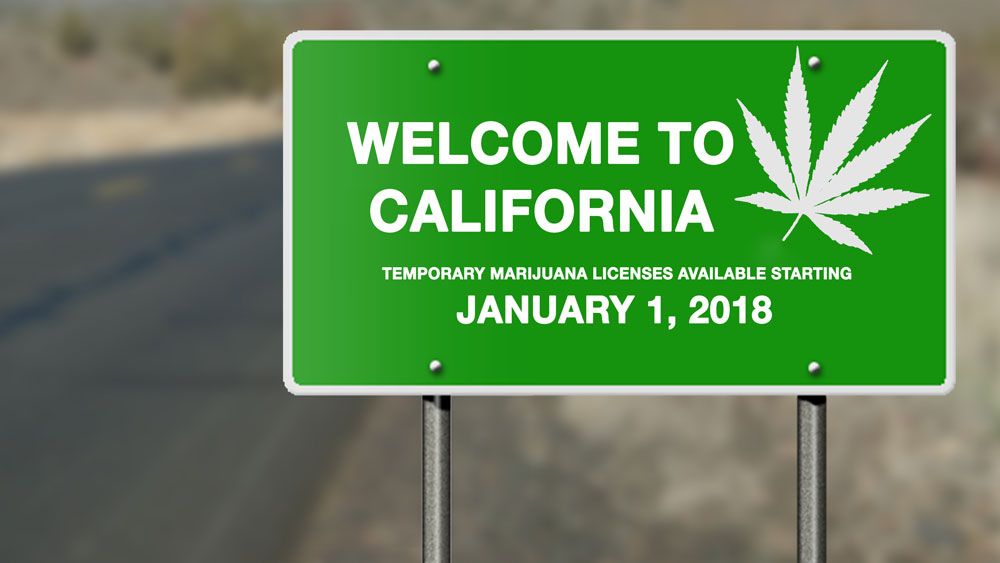California Opens Its Marketplace To Marijuana Businesses In 2018
On November 8, 2016, California voters approved Proposition 64, the Adult Use of Marijuana Act (“AUMA”). AUMA created a statewide regulatory and licensing system for adult-use marijuana businesses. On June 27, 2017, Governor Jerry Brown signed into law the Medicinal and Adult-Use Cannabis Regulation and Safety Act (“MAUCRSA”), which merged regulations for medical and adult-use cannabis into a single regulatory framework. MAUCRSA grants local governments the ability to regulate and/or prohibit commercial marijuana activity within their jurisdictions. The State of California will issue temporary marijuana licenses beginning January 1, 2018 pursuant to Business and Professions Code Section 26050.1. In order to apply for a State temporary license, Applicants must provide evidence of a valid license, permit, or other local authorization.
Licensing
The Bureau of Cannabis Control (“BCC”) is the lead agency in developing regulations for medical and adult-use cannabis in California. BCC is responsible for licensing retailers, distributors, testing labs and microbusinesses. BCC is currently accepting licensing applications through its online licensing system at Bureau of Cannabis Control Online Licensing System.
The Manufactured Cannabis Safety Branch, a division of the California Department of Public Health (“CDPH”), is responsible for regulating the manufacturers of cannabis-infused edibles for both medical and nonmedical use. CDPH is currently accepting licensing applications through its online licensing system at Manufactured Cannabis Licensing System.
CalCannabis Cultivation Licensing, a division of the California Department of Food and Agriculture (“CDFA”), is responsible for licensing cultivators of medicinal and adult-use (recreational) cannabis and implementing a track-and-trace system to record the movement of cannabis through the distribution chain. CDFA is currently accepting temporary licensing applications through its online licensing system at CalCannabis Online Licensing System.
Temporary License Application Information
Business and Professions Code section 26050.1 allows the BCC to issue temporary licenses. A temporary license is a conditional license that allows a business to engage in commercial cannabis activity for a period of 120 days. The BCC can only issue a temporary license if the applicant has a valid license, permit, or other authorization issued by the local jurisdiction.
The BCC intends to start issuing temporary licenses January 1, 2018. BCC is currently accepting licensing applications through its online licensing system at Bureau of Cannabis Control Online Licensing System.
Tax Guide for Cannabis Businesses
If you sell cannabis or cannabis products, you must register with the California Department of Tax and Fee Administration (“CDTFA”) for a seller’s permit. In 2018 this agency took over the administration and collection of sales taxes from the Board Of Equalization. Also, Cannabis cultivators, processors, manufacturers, retailers, microbusinesses, and distributors making sales are required to obtain and maintain a seller’s permit as a prerequisite for applying for a license with the California Department of Food and Agriculture, the California Department of Consumer Affairs, or the California Department of Public Health.
Distributors of cannabis and cannabis products must also register with the CDTFA for a cannabis tax permit to report and pay the two new cannabis taxes to the CDTFA. The cannabis tax permit is in addition to your seller’s permit.
Beginning January 1, 2018, two new cannabis taxes are in effect:
- A 15% excise tax is imposed upon purchasers of cannabis and cannabis products. Retailers are required to collect the excise tax from the purchaser and pay it to the cannabis distributor.
- A tax on the cultivation of cannabis that enters the commercial market is imposed upon cultivators. Cultivators are required to pay the cultivation tax to either a distributor or a manufacturer depending upon the nature of the transaction. The cultivation tax rates are: $9.25 per dry-weight ounce of cannabis flowers, $2.75 per dry-weight ounce of cannabis leaves, and $1.29 per ounce of fresh cannabis plant.
All cannabis businesses making sales are required to:
- Register online with the CDTFA for a seller’s permit.
- File sales and use tax returns electronically and pay any sales and use tax to the CDTFA. Even if none of your sales are subject to sales tax, you are still required to file a return and report your activities on your return to the CDTFA.
In addition, if you are a cannabis distributor, the following requirements apply to you:
- Register online with the CDTFA for a cannabis tax permit.
- Beginning January 1, 2018, collect the excise tax from retailers you supply.
- Beginning January 1, 2018, collect the cultivation tax from cultivators or manufacturers that send or transfer cannabis and cannabis products to you.
- File both your cannabis tax and sales and use tax returns electronically and pay any tax amounts due to the CDTFA.
What Should You Do?
Start your marijuana business on the right track. Be proactive and implement the proper cash management and accounting systems now. Marijuana businesses who hire an experienced attorney-CPA should benefit in paying the least amount of tax under the tax code and if audited, the least audit adjustments and avoiding costly litigation. Let the tax attorneys of the Law Offices Of Jeffrey B. Kahn, P.C. located in Orange County, San Jose and other California locations maximize your net profits and get you the best possible result.








